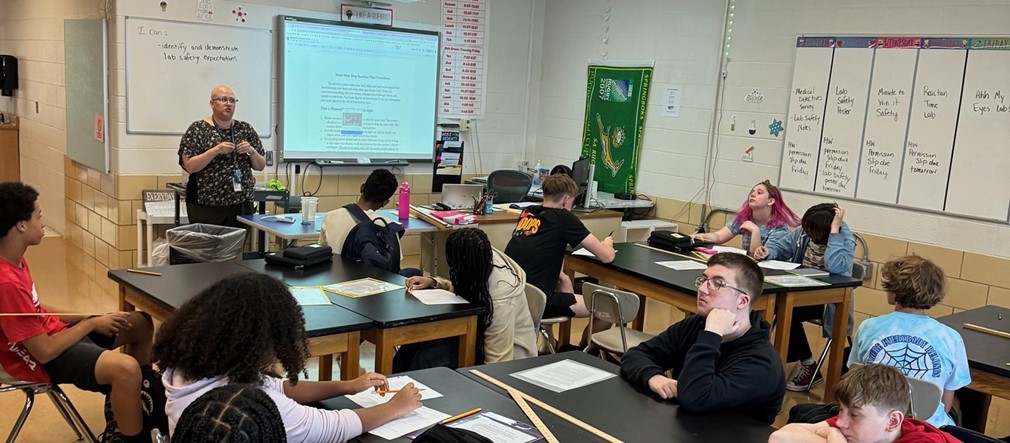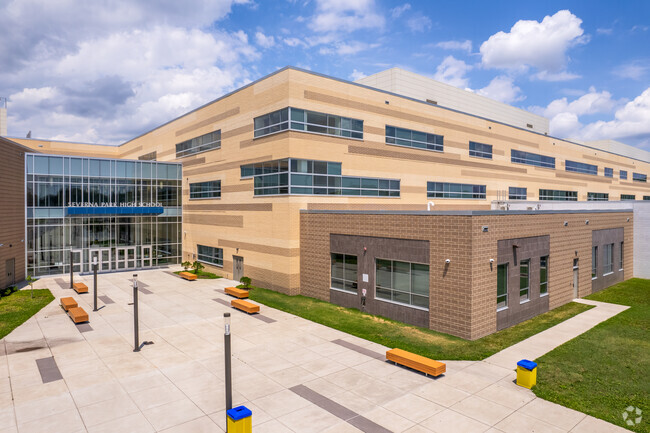Check Out the Obstacles Encountering Our Neighborhood: Save Temecula Schools
Check Out the Obstacles Encountering Our Neighborhood: Save Temecula Schools
Blog Article
Recognizing the Significance of Schools in Child Advancement and Area Development
Schools work as critical institutions for kid advancement and neighborhood development, giving settings where academic achievements are matched by the farming of social abilities and exposure to varied perspectives. These instructional setups not just advertise essential thinking and efficient communication however likewise foster compassion through joint tasks. Schools' involvement with local communities via service-learning initiatives strengthens the bond in between family members and academic organizations. This symbiotic partnership underscores the significance of institutions in supporting energetic citizenship and lifelong understanding practices. What are the particular systems by which these organizations accomplish such profound effects?
Academic Success
Academic accomplishment acts as a keystone of youngster advancement, supplying the foundation upon which future knowing and success are developed. Schools play a pivotal function in cultivating this academic development, supplying organized atmospheres where kids can obtain vital understanding and cognitive abilities. Standard educational program make certain that students gain effectiveness in core topics such as maths, science, and language arts, which are important for both higher education and learning and specialist possibilities.
In enhancement to giving basic academic skills, institutions additionally grow vital reasoning, analytic capacities, and intellectual interest. These cognitive proficiencies are crucial for browsing complex real-world circumstances and adapting to the ever-evolving needs of the contemporary work environment. Teachers, as facilitators of discovering, utilize diverse instructional approaches to deal with different learning styles, thereby maximizing private pupil possibility.
Furthermore, scholastic success is very closely connected to self-esteem and inspiration. Youngsters that experience academic accomplishments are most likely to create a positive self-concept and a lifelong interest for understanding. Schools likewise offer different resources, such as libraries and technology, which even more boost the academic experience and prepare trainees for a highly sophisticated society.
Social Ability Advancement
Beyond academic success, the role of institutions in social skill advancement is important. Schools offer as a key place for youngsters to discover and exercise essential social skills such as communication, dispute, and participation resolution. In the organized environment of a classroom, trainees interact with peers, instructors, and various other school personnel, supplying countless possibilities to create these vital abilities.
Efficient social skill advancement in schools is helped with with group tasks, collaborative projects, and extracurricular programs. These communications help pupils recognize social norms, develop compassion, and promote a sense of community. As an example, group assignments educate pupils how to interact in the direction of an usual goal, pay attention to various point of views, and navigate arguments constructively.

The farming of social skills during college years lays a structure for future individual and professional connections. Save Temecula Schools. As students mature, the capability to effectively collaborate and interact comes to be significantly important, highlighting the school's important function in all natural kid advancement
Direct Exposure to Diversity
Direct exposure to variety in institutions is fundamental to promoting a comprehensive way of thinking and expanding pupils' point of views. Schools work as a microcosm of the wider culture, and encountering varied societies, languages, and socioeconomic backgrounds within this environment equips trainees with necessary skills for browsing an increasingly globalized globe. This direct exposure motivates compassion, decreases prejudices, and advertises shared respect among peers.
Research study shows that students that communicate with peers from diverse backgrounds exhibit far better problem-solving abilities and creativity. This understanding of variety prepares pupils for future workplaces that value modern skills - Save Temecula Schools.

Area Interaction
The benefits of varied class expand beyond the institution walls, fostering a solid sense of area involvement amongst trainees. By interacting with peers from various social, socioeconomic, and ethnic backgrounds, trainees obtain a broader perspective and an appreciation for diversity. This direct exposure encourages them to end up being active people who want to contribute positively to their areas.
Schools that emphasize area interaction frequently incorporate service-learning jobs, which allow pupils to address real-world troubles while using academic skills. These jobs not only boost trainees' understanding of their coursework yet additionally impart a sense of obligation and empathy. Partnerships between colleges and local companies supply pupils with possibilities to participate in neighborhood events, additionally solidifying their function as proactive community members - Save Temecula Schools.
Furthermore, adult and area participation in colleges enhances the bond between universities and the communities they offer. They produce a joint setting that profits all stakeholders when institutions open their doors to area events, workshops, and volunteer possibilities. This shared support group ensures that students receive alternative development, preparing them to become all-round individuals that contribute and value to their communities. Via these initiatives, institutions play a critical role in nurturing neighborhood involvement and promoting societal growth.
Lifelong Knowing Habits
Developing long-lasting knowing habits is necessary for a kid's constant growth and versatility in an ever-changing globe. Schools play an essential function in instilling these read the article behaviors by developing an environment that promotes inquisitiveness, critical reasoning, and a love for knowledge. Through varied curricula and after-school activities, teachers encourage trainees to discover various topics, evaluate info critically, and apply their discovering to real-world scenarios.

Moreover, schools give an organized atmosphere where kids can create self-discipline and time monitoring abilities, both of which are crucial for continuous understanding. By stressing the significance of setting objectives, assessing progress, and adapting approaches, universities prepare students to browse the intricacies of adult life, guaranteeing they remain long-lasting students and contributors to culture.
Final Thought
In verdict, institutions are vital in fostering youngster growth and neighborhood development by supplying atmospheres conducive to academic success, social skill advancement, and exposure to diversity. Ultimately, colleges cultivate lifelong discovering behaviors, equipping individuals with the necessary knowledge and skills to contribute positively to society.
In the organized atmosphere of a class, pupils interact with peers, instructors, and other college team, using many possibilities to establish these vital capabilities.
In significance, exposure to variety within institutions not just enriches private pupils however additionally reinforces the social fabric of the neighborhood as a whole.
The benefits of varied class extend beyond the school walls, fostering a solid sense of area interaction amongst students.Schools that emphasize community engagement usually incorporate service-learning find more jobs, which enable pupils to resolve real-world problems while applying academic skills. Partnerships in between schools and regional organizations supply pupils with chances to participate in community events, additionally strengthening their function as aggressive community members.
Report this page